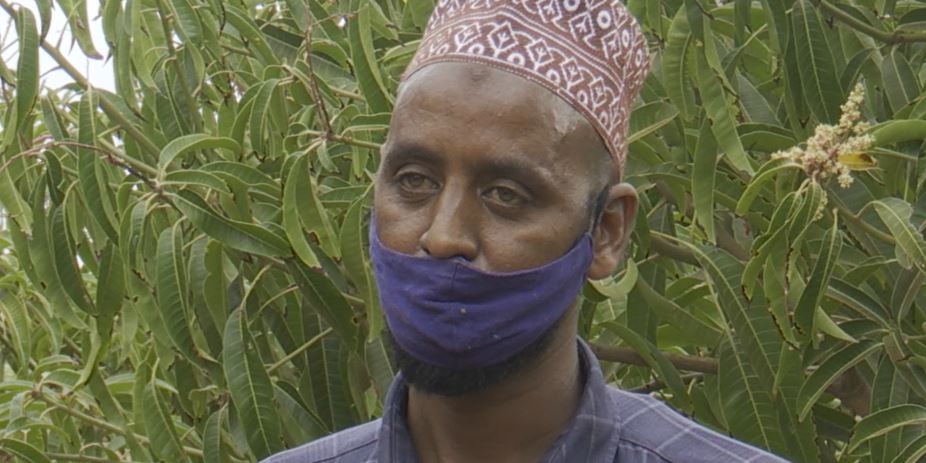 Adan Dahir, ward adminstrator Mansa, Wajir
Adan Dahir, ward adminstrator Mansa, Wajir
Wajir and Mandera County residents who are predominantly pastoralists are now embracing horticulture following the installation of Irrigation projects in the region.
Residents of the two counties have embraced irrigation agriculture by utilizing community water pans and sinking boreholes constructed by the National Irrigation Authority to provide water in the semi-arid region. This is in line with the country’s Big 4 Agenda on food security and Nutrition.
Mansa Irrigation Project in Tarbaj is one of the 20 irrigation projects in Wajir County implemented by the National Irrigation Authority. About 700 acres of land has been put under Irrigation in the county, benefiting about 700 farmers directly.
In Mandera County, 22 Irrigation projects covering about 1,240 acres of land has been initiated, benefitting about 1,240 farmers directly. Lehele Irrigation project in Kotulo Sub County is one of the projects that has seen farmers embrace fruit and vegetable farming.
Among the crops grown in the projects are mangoes, bananas, pawpaw, oranges, kales, tomatoes, and capsicum among others.
- READ MORE
- Pastoralists bask in sweet smell of profits from gum, resin trade
- Court’s order to affect Mandera job interviews
- Man seen flashing dollars in video not Roba’s son, says Chief of Staff
- Mandera County answers MCA over development funds
Ahmed Mohamed, farmer, Mansa Irrigation project says locals who have been relying on livestock as primary source of livelihood are quickly embracing farming as an alternative source of income.
The new practice has helped save time for Mandera County residents who used to walk long distance in search of vegetables.
“Before it was difficult for the kids to understand how crops fruits such as the bananas and mangoes were grown, it is now a reality and many now yearn to be in the fields,” he said in an interview.
The residents are slowly beginning to realize that they can become self-reliant without the livestock,” he added.
The National Irrigation Authority said it will scale up irrigation
projects across the country for its pivotal role in accelerating
President Uhuru Kenyatta’s Big Four Agenda.
The components of Uhuru’s legacy Big Four Agenda include food security, affordable housing, manufacturing, and affordable healthcare for all.
“Our desire when you look at the Big Four one of the desire is food and nutrition security but you realize that when you provide water for irrigation people can get food for household level and even surplus to the market, manufacturing pillar is also dependant on irrigated farming and therefore we are contributing directly to the manufacturing pillar,” noted Daniel Nzonzo Head of Communication at the National Irrigation Authority.
“When Kenyan farmers are empowered enough they can get money which in turn goes to housing, health care; we are going to scale up such projects because we are at the center of Big Four,” he added




No comments :
Post a Comment